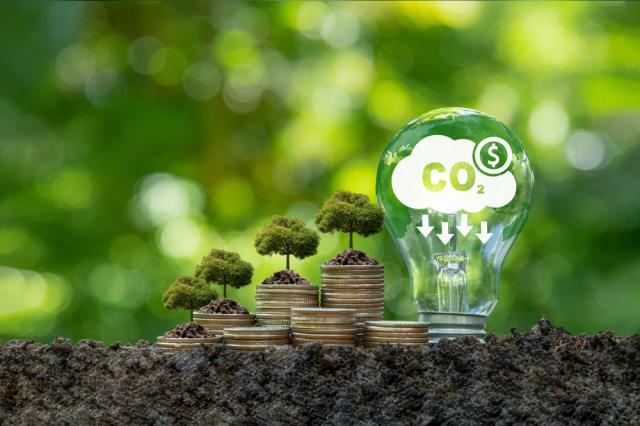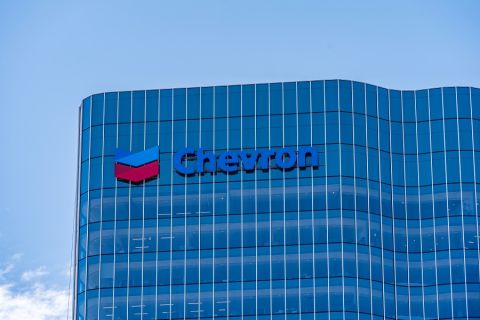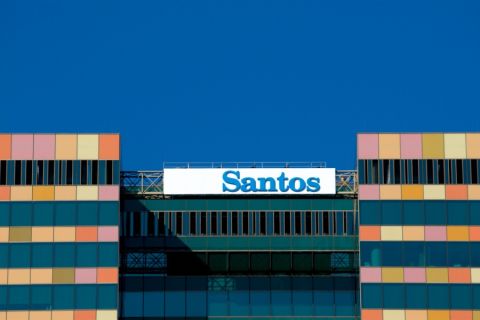
Shell said it’s transforming the LCS business as part of the company’s drive to create more value with less emissions. (Source: Shutterstock)
Shell is downsizing its Low Carbon Solutions (LCS) business and reducing the segment’s headcount a week after CEO Wael Sawan told an energy conference in London the company wouldn’t blindly plunge into energy transition projects.
A Shell spokesperson told Hart Energy on Oct. 26 that “with our enhanced focus on performance in and simplification of our Low Carbon Solutions business, we intend to reduce its headcount by around 200 positions (in 2024), with a further 130 positions under review as the transformation continues up until the end of 2024.” The Guardian reported that combined, the cuts would reduce Shell’s LCS team by about 25%.
Some of the roles will be integrated into other parts of Shell, the spokesperson said.
Shell said it’s transforming the LCS business as part of the company’s drive to create more value with less emissions through a focus on performance, discipline and simplification to “strengthen its delivery on our core low carbon business areas such as transport and industry.”
“Our target to be a net-zero emissions energy company by 2050 remains,” Shell said.
On Oct. 17, Sawan, speaking at the Energy Intelligence Forum 2023, said the company still plans to spend $10 billion to $15 billion on low carbon solutions during the next three years. Shell said those investments include biofuels, hydrogen, electric vehicle charging and carbon capture and storage (CCS).
However, Sawan said the company has “retired’ plans to spend $100 million per annum on nature-based solutions to offset 120 million tons of CO2 equivalent by 2030. He said Shell had audited nature-based solutions—such as conserving wetlands—and found “questionable practices” among some programs.
“I'd much rather give the team the latitude to be able to optimize against key targets like [the] quality of the credits … the integrity of the credits and then how they create value out of that rather than, for example, how much we're spending on it or how many credits we will actually have at the end,” he said.
Shell’s goal has long been to find areas where it can invest in low-carbon options that could potentially provide future growth for the company, said Sawan, who was appointed CEO at the beginning of this year.
However, emerging technologies and markets need further development, he added.
“These are nascent business models that we are developing, but we see running room in some of them like in biofuels at the moment, in EV charging, and so that's where we're looking to double down while we continue to explore other opportunities like green hydrogen and others,” he said.
However, he said the company’s strategy was never to “pivot, prove and then go blind into everything that comes after that.”
“We have really focused on the areas that we see those value pools, and that we have demonstrated value there,” he said.
He said that, in simpler terms, Shell aims to accomplish two goals. The first is to provide energy security with its foundation on oil and gas production. The second is to find a way to be a player in the energy transition.
Sawan said his goal is to deal “with the reality, not with the rhetoric, and that's what we're trying to do.”
He said while some advocate for stopping oil and gas and others want to double-down on production, Shell’s aim is to “to weave what we think is a pragmatic solution that allows us to continue to deliver the energy the world needs while at the same time looking to make the moves in the transition.”
However, he said Shell cannot carry off the energy transition on its own.
“The transition will require a collective effort from governments around the world, from our customers,” he said. “But I also recognize they have their own challenges. Governments are having to choose whether that incremental dollar of support goes to energy transition subsidies or goes into health or goes into education.”
Reuters reported on Oct. 25 that Shell had applied for a U.S. federal grant to develop a low-carbon hydrogen hub in Louisiana, but the project was not among those selected by the Biden administration on Oct. 13. Collectively, the government awarded $7 billion for hydrogen hub projects.
Sawan said he recognizes that governments are not faced with easy choices. But similarly, Shell has to ensure it has a viable business model for its own customers and investors.
“Today the hard reality is that for many companies, in particular in the hard-to-abate sectors, the alternatives for lower carbon energy are very expensive,” he said. “We just all need to continue to lean in and not fall into the polarized discussion that sometimes emerges from this debate. We continue to be convinced that a balanced energy transition that sees us in oil and gas as well as in low carbon solutions is the one for this company, and it's one we're committed to continue to pursue.”
Recommended Reading
Chevron Hunts Upside for Oil Recovery, D&C Savings with Permian Pilots
2024-02-06 - New techniques and technologies being piloted by Chevron in the Permian Basin are improving drilling and completed cycle times. Executives at the California-based major hope to eventually improve overall resource recovery from its shale portfolio.
Barnett & Beyond: Marathon, Oxy, Peers Testing Deeper Permian Zones
2024-04-29 - Marathon Oil, Occidental, Continental Resources and others are reaching under the Permian’s popular benches for new drilling locations. Analysts think there are areas of the basin where the Permian’s deeper zones can compete for capital.
Santos’ Pikka Phase 1 in Alaska to Deliver First Oil by 2026
2024-04-18 - Australia's Santos expects first oil to flow from the 80,000 bbl/d Pikka Phase 1 project in Alaska by 2026, diversifying Santos' portfolio and reducing geographic concentration risk.
Sinopec Brings West Sichuan Gas Field Onstream
2024-03-14 - The 100 Bcm sour gas onshore field, West Sichuan Gas Field, is expected to produce 2 Bcm per year.
Proven Volumes at Aramco’s Jafurah Field Jump on New Booking Approach
2024-02-27 - Aramco’s addition of 15 Tcf of gas and 2 Bbbl of condensate brings Jafurah’s proven reserves up to 229 Tcf of gas and 75 Bbbl of condensate.






